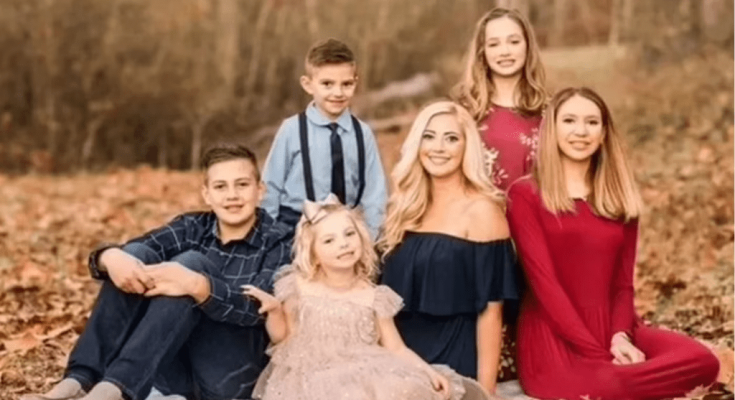Parenting is one of the toughest jobs in the world. For single parents, the challenges multiply as they juggle work, household responsibilities, and childcare. But when does a simple parenting decision cross the line into criminal territory? That’s the question at the heart of a controversial case involving Melissa Henderson, a single mother of five, from Georgia. Her story has sparked widespread debate and raised important questions about parenting, fairness, and justice.
A Tough Choice in Tough Times
Melissa Henderson is a hardworking mom doing her best to provide for her five children. Like many parents, she relies on daycare to help care for her youngest child, Thaddeus. However, during the COVID-19 pandemic, Thaddeus’s daycare shut down due to an outbreak. This left Melissa in a difficult position. With no alternative childcare options available, she turned to her oldest child, a responsible 14-year-old, to babysit her youngest while she went to work.
It was a decision that many parents might make in a bind. After all, teenagers often take on babysitting roles for siblings or neighbors. But what started as a practical solution to a temporary problem quickly spiraled into a legal nightmare.
A Momentary Mishap
While Melissa was at work, her teenage daughter was balancing schoolwork and babysitting duties. During this time, Thaddeus, just 4 years old, slipped outside to play. He was outside for approximately 15 minutes before his sister realized he was missing and brought him back inside. Thankfully, no harm came to him.
However, a concerned neighbor saw the young boy outside alone and called 911. While the intention was undoubtedly to ensure the child’s safety, the call set off a chain of events that would lead to Melissa’s arrest two weeks later.
The Arrest That Shocked Many
Police arrived at Melissa’s home and arrested her on charges of criminal reckless conduct. The police report suggested that leaving Thaddeus unattended, even briefly, could have exposed him to dangers such as kidnapping, being hit by a car, or encountering a venomous snake. If convicted, Melissa faces the possibility of one year in jail and a $1,000 fine.
Melissa described the experience as “the most embarrassing and humiliating day” of her life. For her, this wasn’t a case of neglect but a necessary decision made under difficult circumstances.
The Public Debate
Melissa’s story has sparked widespread debate, with opinions sharply divided. Supporters argue that she was doing her best under challenging circumstances and that asking her teenage daughter to babysit was a reasonable decision. They point out that teens have been trusted with babysitting duties for generations, and Melissa’s situation was not unusual.

On the other hand, critics believe the safety of young children should always be the top priority. They argue that a 14-year-old might not be equipped to handle the full responsibility of caring for a younger sibling, especially while managing other tasks like schoolwork.
A Broader Look at Parenting Challenges
Melissa’s case highlights the immense pressure faced by single parents. With limited resources and support, many single mothers and fathers must make tough decisions daily. Childcare, in particular, is a significant challenge. In the United States, the high cost of daycare and limited availability of affordable options leave many parents scrambling for solutions.
The case also raises questions about how society supports parents and whether the criminal justice system is the appropriate mechanism for addressing these types of situations. Critics of Melissa’s arrest suggest that offering resources or support might have been a better approach than legal action.
Is the Punishment Too Harsh?
The possibility of jail time and a hefty fine for Melissa has many questioning whether the punishment fits the alleged crime. While no one disputes the importance of keeping children safe, the circumstances of this case seem to lack malicious intent or gross negligence. Instead, they reflect the difficult choices parents often face.
Punishing Melissa could set a dangerous precedent, making other parents fearful of seeking help or relying on older children in times of need. It also raises concerns about the disproportionate impact of such legal actions on low-income families and single parents.
A Call for Compassion and Understanding

Parenting is rarely perfect, and every parent makes mistakes. Melissa’s situation is a reminder that raising children is a complex, demanding task that requires community support and understanding. Instead of focusing solely on punishment, perhaps we should be asking how society can better assist parents in similar situations.
Cases like Melissa’s challenge us to consider what justice and fairness look like in the context of parenting. Should a momentary lapse in judgment lead to severe consequences, or should the focus be on providing guidance and resources to help parents navigate difficult situations?
Conclusion
Melissa Henderson’s story is a poignant example of the challenges single parents face daily. Her decision to leave her teenage daughter in charge of babysitting, though not without its risks, was a practical solution in a tough situation. The legal response, however, has raised important questions about fairness, justice, and the level of support provided to struggling parents.
As this case unfolds, it serves as a reminder that parenting is a shared responsibility—not just for mothers and fathers, but for society as a whole. Instead of rushing to judgment, perhaps we should focus on offering empathy, understanding, and tangible solutions to help parents like Melissa succeed.



 Amy Schumer Says John Cena Was ‘Actually Inside Her’ During X-Rated Scene
Amy Schumer Says John Cena Was ‘Actually Inside Her’ During X-Rated Scene 